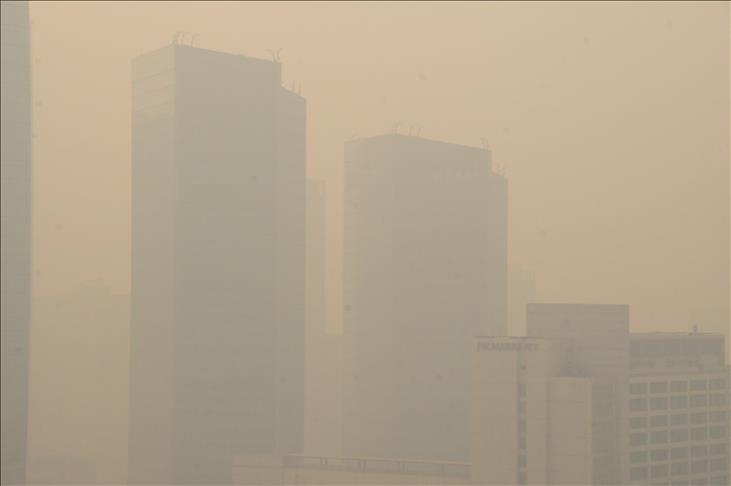
By Tesfa Mogessie
ADDIS ABABA, Ethiopia
Addis Ababa, a cosmopolitan city of close to four million people – which hosts African Union headquarters and other international and regional organizations – continues to suffer from several kinds of pollution, including sound pollution.
“A loud sound echoes beginning at midnight from a nearby nightclub,” Selam Basha, a resident of the capital, told Anadolu Agency.
“The loud music is robbing me of my right to sleep,” Selam, 38, who lives in Addis Ababa’s Hayahulet district, said.
The Hayahulet district is known for its many brothels and perpetual loud music mixed with the shouts of merrymakers.
According to Selam, local residents – including herself – lodge frequent complaints about the nearby nightclub.
“The sound makes my family and I lose sleep,” she said bitterly.
Samson Chala, a resident of the same neighborhood, expressed similar annoyance.
“They [nightclubs] should either be closed down or relocate to other areas far from residential quarters,” he said.
According to Adugna Mekonnen, deputy manager of the Addis Ababa Environmental Protection Authority, the municipal authorities were receiving “a barrage of complaints” from residents concerning sound pollution.
“Most complaints we receive daily are about sound pollution,” he told Anadolu Agency. “We’re therefore seeking ways to get residential quarters well separated from nightclubs and hotels.”
-Toxic leakage-
Aside from sound pollution, Addis Ababa also remains plagued by land, air and water pollution, which Adugna attributed to “poisonous leakages from industrial zones, vehicles and residential areas”.
Soil and water pollution in particular, he said, were becoming “a huge problem” for the city.
“Many industries [in Addis Ababa] lack waste-treatment systems,” he noted, despite laws prohibiting the release of industrial waste into any part of the city.
In 2008, the municipal authorities issued a five-year deadline for industrial establishments in the city to install waste-treatment systems.
“Too many of the city’s industries, however, did not seem to meet this deadline,” Adugna said.
-Waste disposal-
Adugna lamented the fact that Addis Ababa lacked modern systems for waste disposal – a shortcoming, he said, visible to anyone who walked through the city’s streets.
“This makes purification efforts very difficult,” he said.
Pollution in Addis Ababa also emanates from private homes, many of which empty their septic tanks into the city’s many streams and rivers.
Most observers attribute this trend to the capital’s high population density, which forces many residents to build homes along the city’s riverbanks.
According to Adugna, Addis Ababa is also increasingly feeling the impact of climate change.
“Floods inundated the city and damaged roads and other infrastructure last year,” he said.
Yonas Gebru, an Ethiopian environment expert, said the city was also suffering from air pollution due to vehicular and industrial emissions.
While local authorities lack the equipment needed to gauge air pollution levels, thick smog can often be seen hovering over the city – especially at rush hours.
Yonas, the executive director of the Forum for Environment, a local NGO, said the problem had so far received little attention.
So as the world gears up to mark World Environment Day on Friday, Addis Ababa’s chronic pollution problem looks set to continue – at least for the short term.
Anadolu Agency website contains only a portion of the news stories offered to subscribers in the AA News Broadcasting System (HAS), and in summarized form. Please contact us for subscription options.

